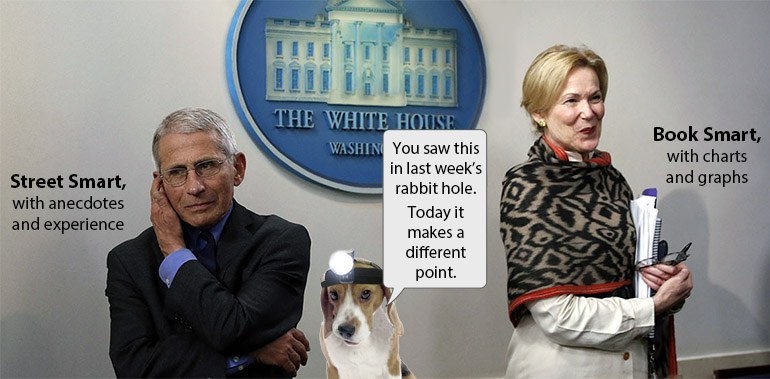
“Unlike Dr. Fauci, Dr. Birx is a strong believer in models that forecast the course of an outbreak. Dr. Fauci has cautioned that “models are only models” and that real-world outcomes depend on how people respond to calls for changes in behavior — to stay home, for example, or wear masks in public — sacrifices that required a sense of shared national responsibility.”
“In his decades of responding to outbreaks, Dr. Fauci, a voracious reader of political histories, learned to rely on reports from the ground. Late at night in his home office this spring, Dr. Fauci, who declined to comment for this article, dialed health officials in New Orleans, New York and Chicago, where he heard desperation unrecognizable in the more sanguine White House meetings.”
“Dr. Fauci had his own critics, who said he relied on anecdotes and experience rather than data, and who felt he was not sufficiently attuned to the devastating economic and social consequences of a national lockdown.”
“As the pandemic worsened, Dr. Fauci’s darker view of the circumstances was countered by the reassurances ostensibly offered by Dr. Birx’s data.”
Read the entire July 18, 2020 story in the New York Times,
authored by Michael D. Shear, Noah Weiland, Eric Lipton, Maggie Haberman and David E. Sanger